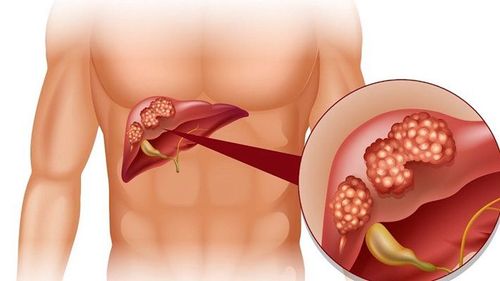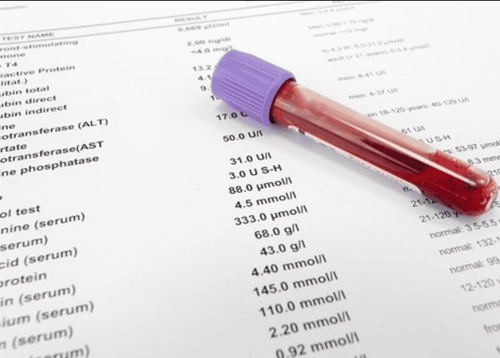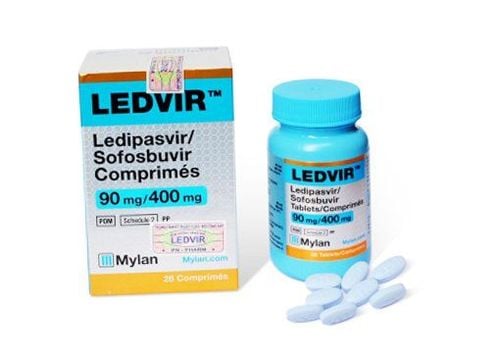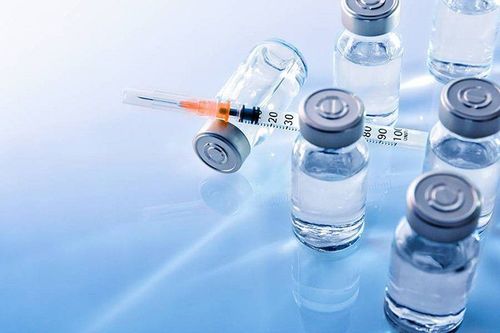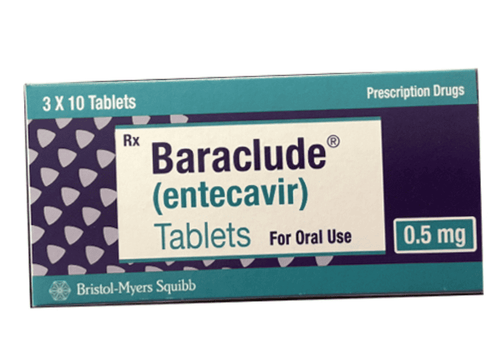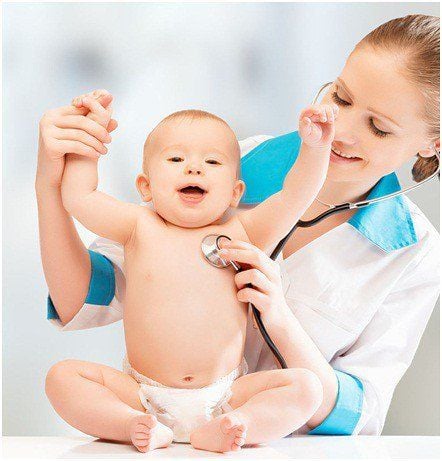This is an automatically translated article.
The article is professionally consulted by Master, Doctor Nguyen Hai Ha - Head of Vaccine Unit - Pediatric Outpatient Department, Vinmec Times City International General Hospital.It is estimated that 10-20% of the population is infected with hepatitis B virus, of which the rate of hepatitis B virus infection in pregnant women is 10-16%. To prevent the risk of mother-to-child transmission of hepatitis B virus, according to the guidelines of the World Health Organization and the Ministry of Health, it is necessary to vaccinate infants against hepatitis B. However, at what time should the infant hepatitis B vaccine be given to provide the best protection for the child?
1. Why should infants be vaccinated against hepatitis B?
Hepatitis B is a disease that causes acute or chronic inflammation and necrosis of liver cells, which is the leading cause of cirrhosis and liver cancer in the world. Hepatitis B is caused by the hepatitis B virus. It is estimated that every year around the world at least one million people die from liver diseases caused by hepatitis B virus.
Mother-to-child transmission is one of the main routes of transmission of hepatitis B virus. In During pregnancy, the metabolism between mother and child takes place in the placenta, mother and child's blood do not come into direct contact with each other, so infection rarely occurs. The transmission is mainly at the time of childbirth, when the uterus and blood vessels where the placenta constrict, causing the blood of the mother and the baby to come into contact or the baby can also be infected when they pass through the mother's vagina.
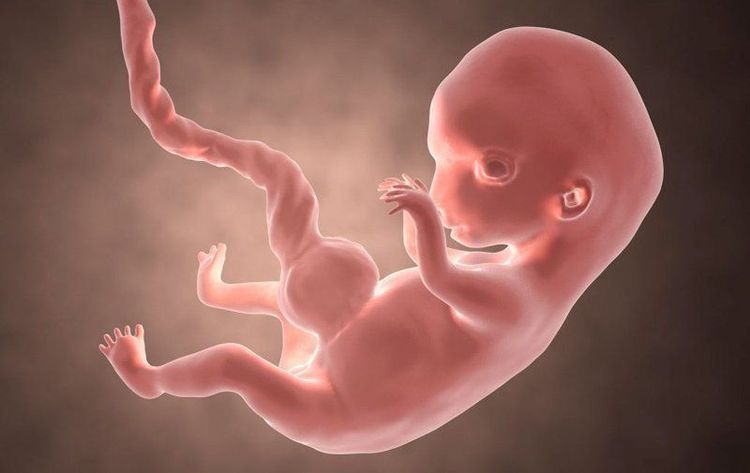
Virus viêm gan B lây truyền từ mẹ sang con
If the mother is both HBsAg and HBeAg positive, 70-90% of the baby will be born infected with hepatitis B virus. If the mother is HBsAg positive, HBeAg negative, the rate of infection is 10-40%. In addition, family members and caregivers infected with hepatitis B are also likely to transmit the virus to children through direct contact with scratches and bleeding.
Being infected with the hepatitis B virus at an early age is a major health risk, the earlier a person has a hepatitis B viral load, the higher the risk of liver disease. According to research, up to 80-90% of children infected with hepatitis B virus in the first year of life will have chronic hepatitis, a high risk of cirrhosis, liver cancer later on, and will be a source of viral infection. mainly for the community.
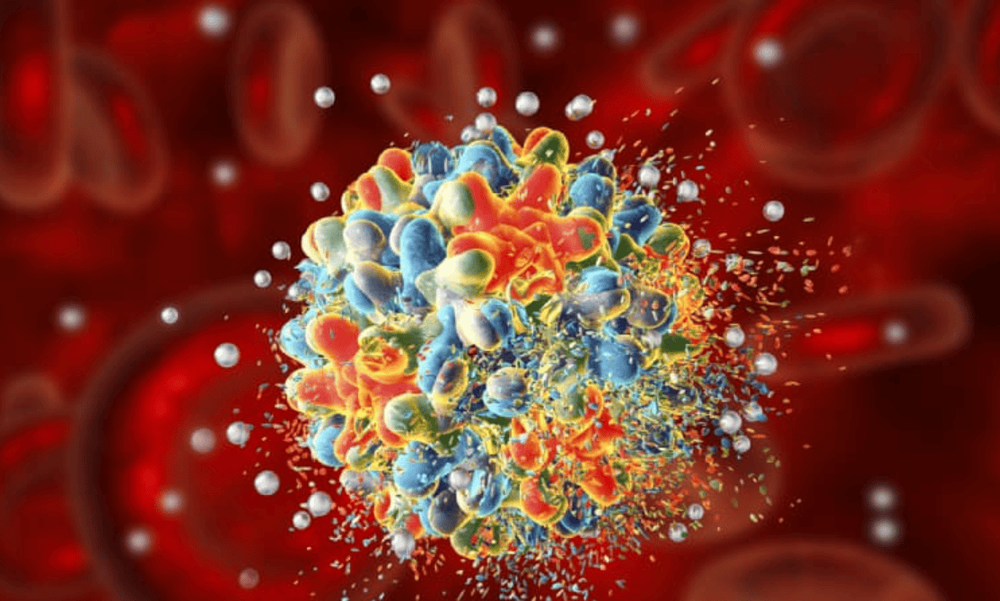
Virus viêm gan B
Vaccination against hepatitis B for babies will help the baby's body to produce antibodies against hepatitis B virus, this is an effective method to protect the baby from one of the threatening dangers. human health. Hepatitis B vaccine can be given on the same day as other vaccines without affecting the child's immune response or health.
2. At what time should infants be vaccinated against hepatitis B?
Neonatal hepatitis B vaccination should be given as soon as possible, preferably within 24 hours of birth. The shot given during this time can protect 85-90% of babies from getting the hepatitis B virus from their mothers. If you wait until the next day to inject (from 24-48 hours), the protective effect will be reduced to only 50 - 57%.
Vaccination against hepatitis B in the first hours after birth helps the baby's body to create antibodies against the hepatitis B virus that is multiplying in the young person exposed during childbirth. This is really a battle that if babies are not vaccinated against hepatitis B soon after birth, they have almost no chance of winning.
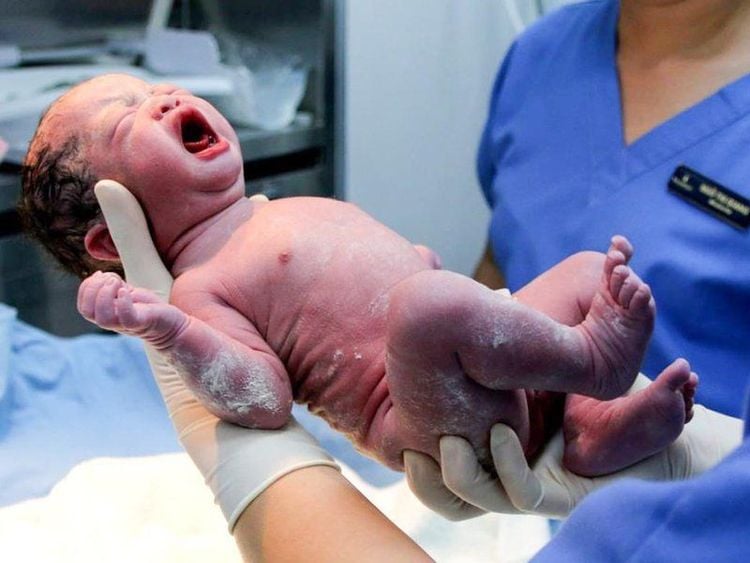
Tiêm vắc-xin phòng viêm viêm gan B càng sớm càng tốt
If the mother has a negative HBsAg test, in theory, the mother is not infected with the hepatitis B virus, but vaccination against hepatitis B 24 hours after birth for the baby must still be done. Because the mother's test results may not be accurate, she has a false negative, she is infected with a mutated strain of hepatitis B virus that the blood test cannot detect. Or even though the baby is not infected from the mother, the baby can be infected with hepatitis B virus from healthcare workers, relatives, caregivers who are infected with hepatitis B virus. If the mother has hepatitis B (HbsAg test). positive), it is necessary to give hepatitis B vaccine and serum to the baby within 24 hours of birth, preferably 12 hours to ensure that the baby is not infected
Hepatitis B vaccination for infants birth within 24 hours after birth is considered the golden time, a simple but protective injection is very important in a child's life, the danger of hepatitis in a newborn is up to 90% of cases. There are no specific clinical symptoms, the disease develops silently and until decades later, there are manifestations such as cirrhosis, liver cancer.
3. What cases delay hepatitis B vaccination 24 hours after birth?
Vaccination against hepatitis B 24 hours after birth for babies is extremely necessary, but there are some cases where it is necessary to postpone vaccination according to Decision 2470/QD-BYT on pre-vaccination screening. promulgated on June 14, 2019 with the provision to suspend hepatitis B vaccination for children as follows:
Children with emergency indications, children with fever ≥ 37.50 C or hypothermia ≤ 35.50 C (axillary temperature 35.50 C). ), vaccination when the child's health is stable. Children with a gestational age of less than 28 weeks of gestation should be vaccinated against hepatitis B when they reach 28 weeks of gestation (including gestational age). Children weighing <2000g whose mother is HBsAg negative. If the mother is HBsAg positive or does not test, the child should be vaccinated against hepatitis B. Children with congenital heart disease have elevated pulmonary artery pressure (≥ 40 mmHg).
4. The price of hepatitis B vaccine for babies
Hepatitis B vaccine in the expanded immunization program of the Ministry of Health, the vaccine is provided to all grassroots health levels, hospitals, clinics with obstetrics and is completely free of charge. for children. After receiving the first dose of hepatitis B vaccine at the hospital within 24 hours of birth, the child will receive further doses of hepatitis B vaccine at 2 months of age, 3 months of age and 4 months of age at the hospital. commune health stations, wards in the area of residence. At this time, the hepatitis B vaccine will be combined with the diphtheria-pertussis-tetanus-Hib vaccine into a 5-in-1 vaccine.
In the vaccination service program or some hospitals that use service vaccines, the hepatitis B vaccine will have to pay the cost depending on the type of vaccine. After the neonatal hepatitis B vaccine, the hepatitis B vaccine will be given again at 2,3,4,18 months in a 6-in-1 or 5-in-1 combination vaccine.
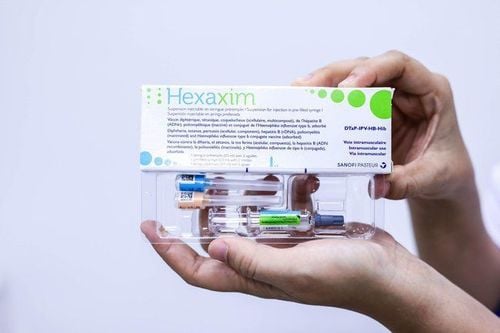
Vắc-xin 5 trong 1 phòng viêm gan B
After receiving enough doses of hepatitis B vaccine according to the vaccination program, parents should send their children to medical facilities to measure antibodies in the young person. This is very important, especially if the mother is infected with hepatitis B virus or someone in the family is infected. From the test results, the doctor will assess whether the amount of antibodies is enough to protect the child from the risk of hepatitis B virus infection, if the antibody level in the young person is not enough (HBsAb <10 mUI/ml), The doctor will advise the parents on a plan to give the child a booster shot.
Vinmec International General Hospital provides customers with a package vaccination program from children to adults with full benefits and attached services.
Vinmec International General Hospital provides hepatitis B vaccination service with a variety of vaccines to meet the needs of many target groups.
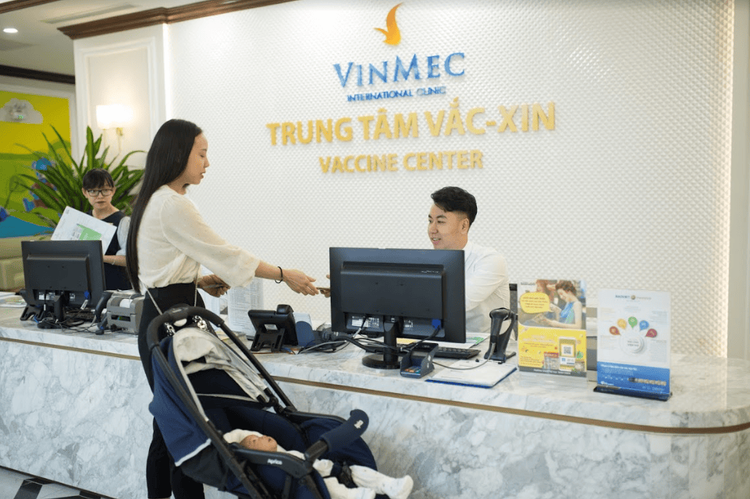
Đăng kí tiêm chủng tại Vinmec
Advantages of vaccination at Vinmec:
Children will be examined by pediatricians - vaccines, fully screened for physical and health problems, and advised on preventive vaccines and vaccines. vaccination regimen, how to monitor and care for children after vaccination before giving the indication for vaccination according to the latest recommendations of the Ministry of Health & the World Health Organization to ensure the best effectiveness and safety for children. A team of experienced and professional pediatric doctors and nurses, understand children's psychology and apply effective pain relief methods for children during the vaccination process. 100% of vaccinated children were monitored for 30 minutes after vaccination and reassessed before leaving. Undertake medical supervision before, during and after vaccination at Vinmec Health System and always have an emergency team ready to coordinate with the vaccination department to handle cases of anaphylaxis, respiratory failure - circulatory arrest, ensuring Ensure timely and correct handling when incidents occur. The vaccination room is airy, with a play area, helping children feel comfortable as if they are walking and have a good mentality before and after vaccination. Vaccines are imported and stored in a modern cold storage system, with a cold chain meeting GSP standards, keeping vaccines in the best conditions to ensure quality.
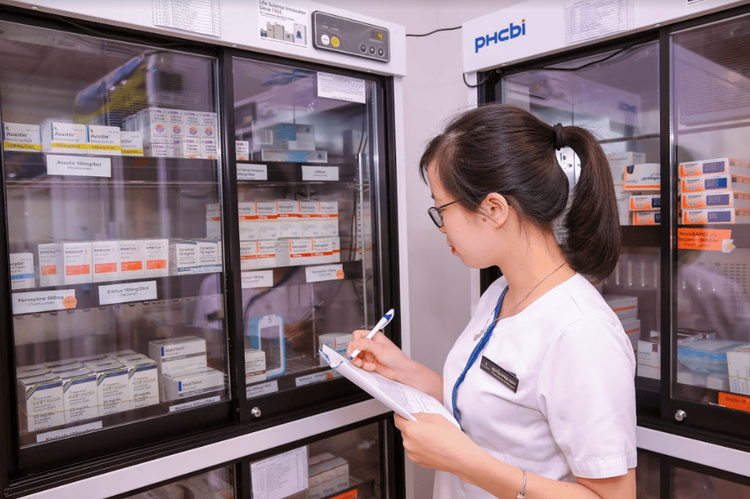
Vắc-xin tại Vinmec được bảo quản theo tiêu chuẩn GSP
Parents will receive a reminder message before the vaccination date and the child's immunization information will be synchronized with the National Immunization Information System. To receive direct advice or schedule an appointment to vaccinate your child (including a repeat schedule), parents please book an appointment HERE or contact the nearest Vinmec International Clinic/Hospital Hotline.
MORE:
10 frequently asked questions about hepatitis B Hepatitis B A to Z Handbook When and how is hepatitis B transmitted?





